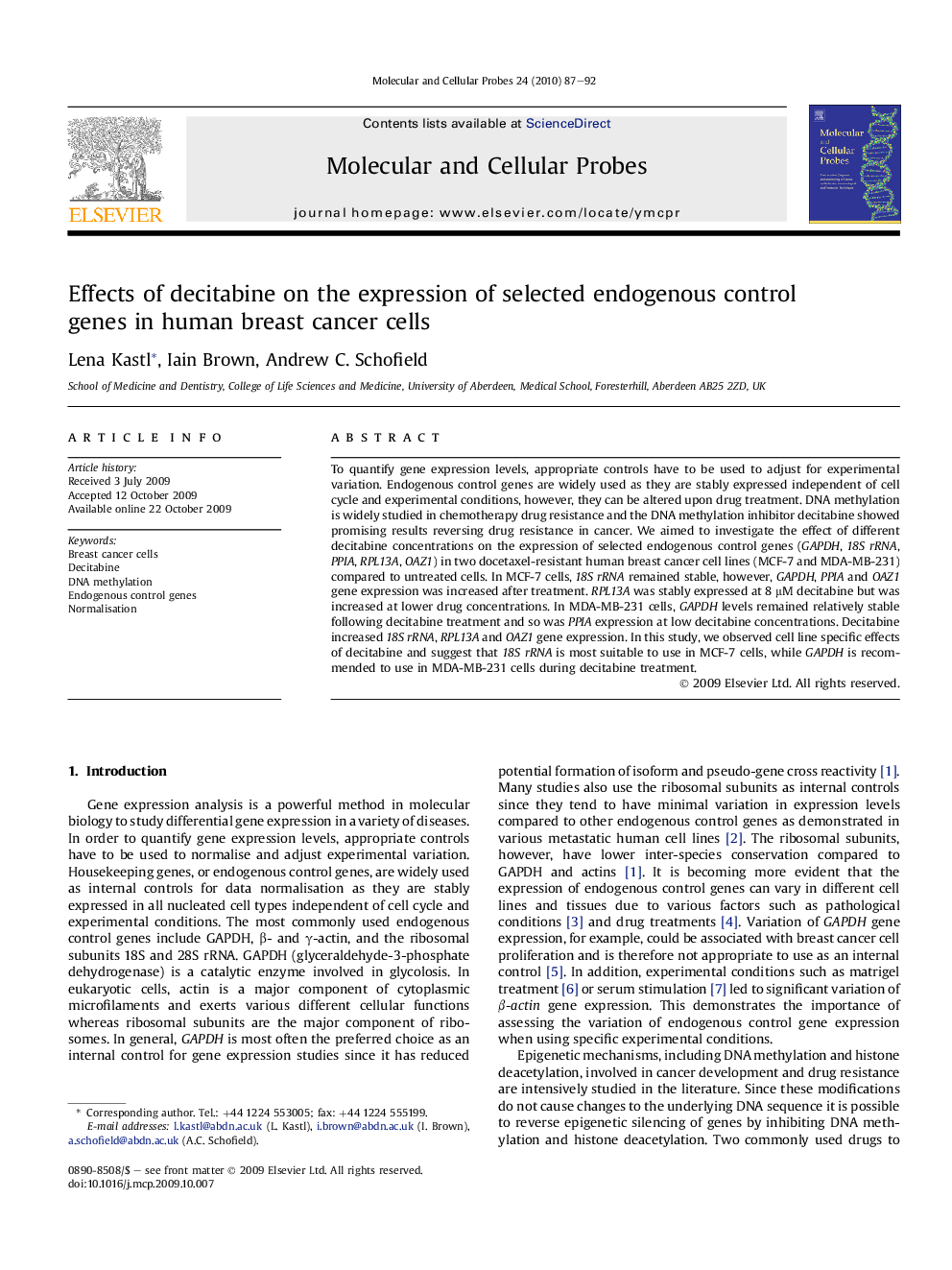| Article ID | Journal | Published Year | Pages | File Type |
|---|---|---|---|---|
| 2199754 | Molecular and Cellular Probes | 2010 | 6 Pages |
To quantify gene expression levels, appropriate controls have to be used to adjust for experimental variation. Endogenous control genes are widely used as they are stably expressed independent of cell cycle and experimental conditions, however, they can be altered upon drug treatment. DNA methylation is widely studied in chemotherapy drug resistance and the DNA methylation inhibitor decitabine showed promising results reversing drug resistance in cancer. We aimed to investigate the effect of different decitabine concentrations on the expression of selected endogenous control genes (GAPDH, 18S rRNA, PPIA, RPL13A, OAZ1) in two docetaxel-resistant human breast cancer cell lines (MCF-7 and MDA-MB-231) compared to untreated cells. In MCF-7 cells, 18S rRNA remained stable, however, GAPDH, PPIA and OAZ1 gene expression was increased after treatment. RPL13A was stably expressed at 8 μM decitabine but was increased at lower drug concentrations. In MDA-MB-231 cells, GAPDH levels remained relatively stable following decitabine treatment and so was PPIA expression at low decitabine concentrations. Decitabine increased 18S rRNA, RPL13A and OAZ1 gene expression. In this study, we observed cell line specific effects of decitabine and suggest that 18S rRNA is most suitable to use in MCF-7 cells, while GAPDH is recommended to use in MDA-MB-231 cells during decitabine treatment.
